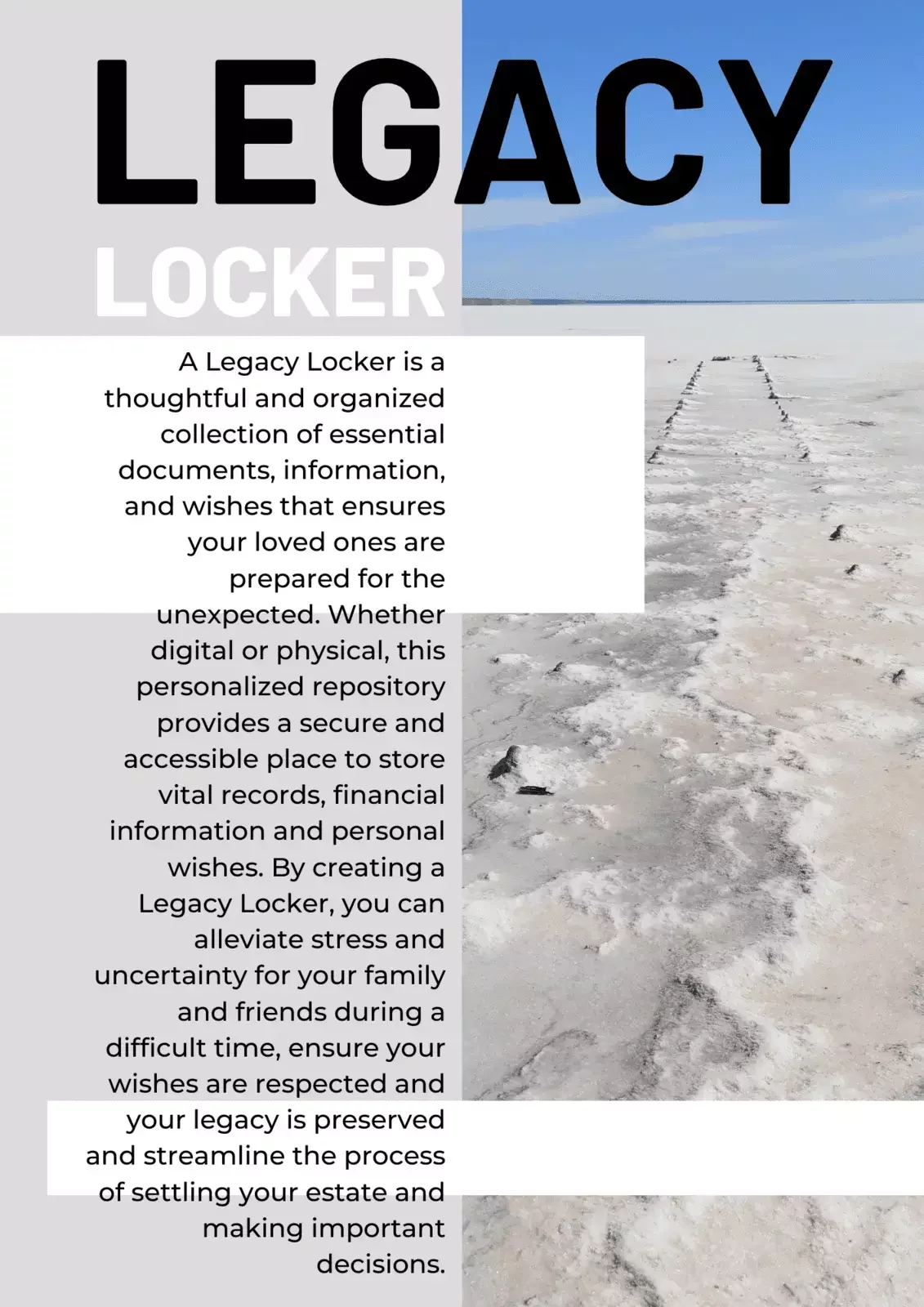
Important Documents
Digital Assets:
Cryptocurrency information (wallets, keys), Online storage accounts (cloud storage), Social media accounts (or select your legacy nomination), Email accounts, Online banking and investment login credentials, Subscriptions/memberships, Phone access code.
Other Financial Information: Debt obligations (credit card, loan, mortgage), Utility bills (electricity, gas, water, internet), Membership and subscription information, (clubs, organizations), Business partnerships or ownership documents, Vehicle ownership documents
Real Estate Documents: Property deeds, Title insurance policies, Property tax records
Beneficiary Designations: Life insurance beneficiaries, Retirement account beneficiaries, Trust beneficiaries, Account beneficiaries (bank, investment), Power of Attorney
Other Relevant Documents: Marriage certificate, Birth Certificate, Divorce or separation agreements, Passport information/I.D, Birth certificate/adoption papers for minor children, Make a listing of all your sources of income, especially ones that your family might not know too much about, List of names and contact numbers for your financial adviser, doctor, lawyer/solicitor, accountant, insurance broker and your employer.
Why it Matters | Having these essential Estate Planning Documents readily available for your loved ones when you pass is crucial for several reasons:
Avoids Confusion and Stress: By having these documents organized and accessible, your loved ones can avoid the emotional burden of searching for them during a difficult time.
Ensures Your Wishes Are Respected: A clear and up-to-date Will, Living Will, and Power of Attorney ensure that your wishes regarding your estate, healthcare, and finances are carried out as intended.
Prevents Family Disputes: Having a well-structured Estate Plan in place can prevent family conflicts and disputes over inheritance, property, and other assets.
Saves Time and Money: By having all necessary documents in order, your loved ones can avoid costly and time-consuming legal battles, probate, and other estate administration issues.
Provides Peace of Mind: Knowing that your affairs are in order and that your loved ones will be taken care of can bring immense peace of mind and comfort during a difficult time.
By having these essential Estate Planning Documents readily available, you can ensure that your loved ones are protected, your wishes are respected, and your legacy is preserved.


Why planning your funeral is the best gift you can give your loved ones
Planning your funeral is something you might not benefit from, but your family will. Here’s how to do it so that you and your family have peace of mind.
Most people don’t like to think about dying, nor do they enjoy discussing their inevitable death with their family. But planning your funeral is important. This is because it will relieve your loved ones of some of the burdens during their time of loss, giving you peace of mind.
Read the Sanlam article HERE

A Comprehensive 25 point checklist to prepare for the inevitable - death
Preparing in advance for death or permanent disablement of a loved one is an unpleasant thought, but can only be of benefit when something does happen, notes Christel Botha, fiduciary services manager at Alexander Forbes. Death is inevitable, so planning for it should be a priority, she says.
Read the BUSSINESSTECH article HERE
